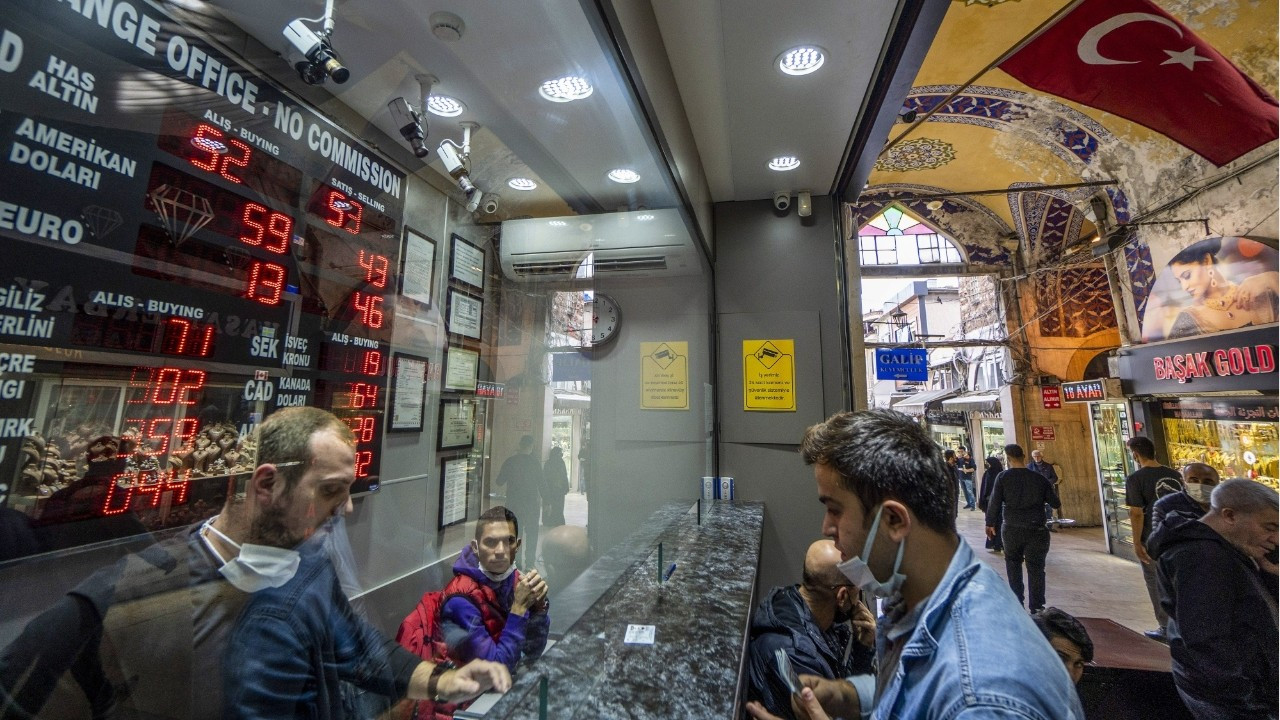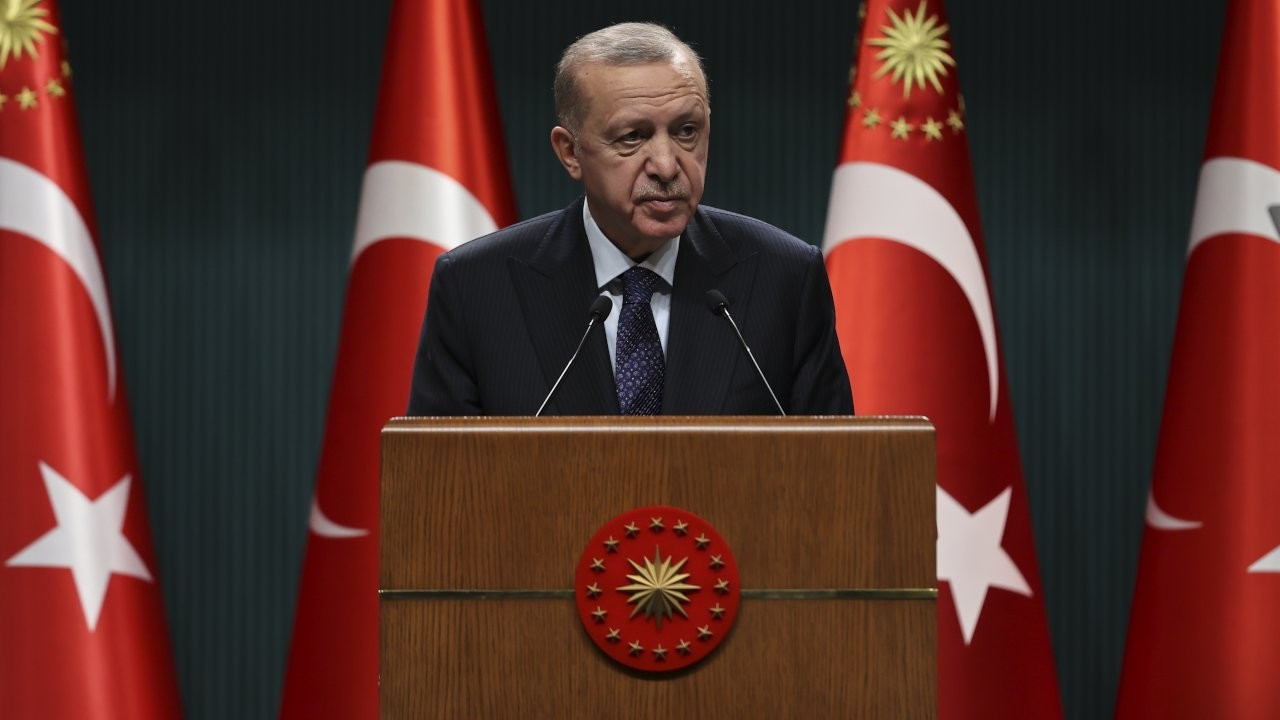Turkish lira plummets to new low, central bank intervenes
The Turkish lira crashed as much as 7% in just a few minutes to a new record near 15 to the dollar on Dec. 13. The sudden slide left the currency with half the value that it had at the end of last year, fuelling inflation in a big emerging market economy which depends heavily on imports.
Reuters
The Turkish lira crashed as much as 7% in just a few minutes to a new record near 15 to the dollar on Dec. 13, gripped by worries over President Recep Tayyip Erdoğan's risky new economic policy and prospects of another interest rate cut on Dec. 16.
The central bank announced its fourth market intervention in two weeks, selling dollars, as the slide to 14.99 left the lira worth just half of its end-2020 value.
Last week, the bank moved to keep the lira (TRY) below 14 as depreciation fuels inflation in a big emerging market economy which depends heavily on imports.
"Last week's apparent relative stability of TRY was artificial and non-sustainable. Now we see the build-up pressure unfolding, driving lira weakness to the next level," Commerzbank said in a note. "Any further attempts of CBT to stabilize TRY by interventions is probably bound to fail."
By 1044 GMT, the lira had trimmed losses in thin market trading and stood at 14.25 - still 2.5% weaker on the day.
Turkey's central bank, under pressure from Erdoğan, is expected to cut its policy rate by 100 basis points to 14% this week, a Reuters poll showed on Dec. 10, despite inflation soaring to 21.3% last month.
However, there was skepticism about whether the bank would go through with it given the volatility.
"Honestly I don't think they can carry out another 100 bps cut this week. The lira has been very volatile for the past few weeks, and the S&P has downgraded to a negative outlook. The markets will have very little tolerance to such a move," said Ipek Özkardeşkaya, senior analyst at Swissquote Bank.
Erdoğan was expected to hold talks with Central Bank Governor Şahap Kavcıoğlu, Finance Minister Nureddin Nebati and the heads of state banks in Istanbul on Dec. 13, sources told Reuters.
Turkey's sovereign dollar bonds dropped, with the 2034 issue down 0.8 cents, according to Tradeweb data. Lira implied volatility gauges jumped, data from Fenics showed.
Outlook revised to negative
The lira crash has sharply eroded Turks' earnings, fuelling poverty and leading to lines of people waiting to buy cheap bread as the price of goods surges. Lawmakers have brawled amid rising tensions in parliament as the opposition slams the government's handling of the economy.
The central bank has slashed its policy rate by 400 basis points since September, driving the concerns of investors and savers and upending the budgets and future spending plans of locals.
Late on Dec. 10, ratings agency S&P affirmed Turkey's long-term foreign currency rating at "B+" and revised its outlook to negative on an uncertain policy direction amid rising external risks.
Turkey's 5-year credit default swaps (CDS) nudged 1 basis point higher to a one-week high of 503 basis points, according to IHS Markit data.
An S&P model largely based on CDS levels, known as the Market Derived Signal Score, shows CDS markets currently expect a two notch downgrade to Turkey's rating.
Erdoğan has repeatedly advocated for the rate cuts as he promotes a new economic plan prioritizing economic growth, credit, production and exports, despite widespread criticism of the policy from economists and opposition politicians.
"There is an element of concern about what the economic plan is, and how closely aligned it would be to engaging with the private sector. There is a lack of clarity around that," said Khush Choksy, the U.S. Chamber's senior vice president for international development and for the Middle East and Turkey.
"U.S. companies do have questions about how Turkey will handle the current short-term crisis and get on to the path of long-term growth that it enjoyed for a long period," he said in an interview.

 Turkish grocery stores impose quotas on milk sales amid skyrocketing pricesEconomy
Turkish grocery stores impose quotas on milk sales amid skyrocketing pricesEconomy S&P lowers Turkey outlook to negative, cites 'rising risks'Economy
S&P lowers Turkey outlook to negative, cites 'rising risks'Economy Turkish lira slump hits displaced families in Syria's northwestEconomy
Turkish lira slump hits displaced families in Syria's northwestEconomy Erdoğan asks Turks to trust new economic model as lira weakensEconomy
Erdoğan asks Turks to trust new economic model as lira weakensEconomy